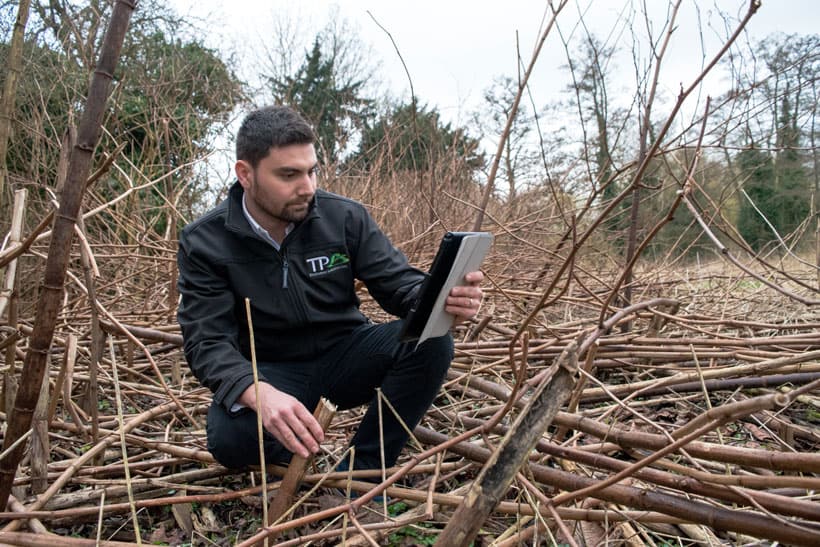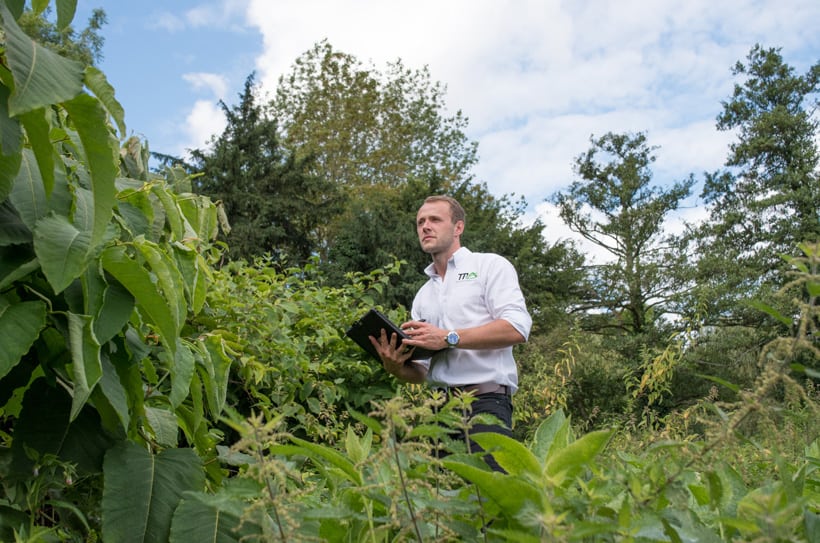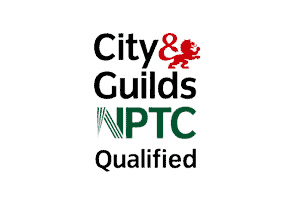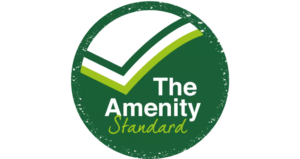Japanese Knotweed Survey
If you are looking to buy or sell a property, you will likely require a full Japanese Knotweed survey to determine the presence or absence of Japanese Knotweed within the property boundaries.

Why do I need a Japanese Knotweed Survey?
Japanese Knotweed must be declared on a TA6 form due to the high possibility of damage occurring. For those who have Japanese Knotweed on their property, the effect it can have on a properties value and it’s potential to spread need to be stated. If you do not declare the presence of Japanese Knotweed, you may be legally accountable. Many mortgage providers will ask for a full survey to be undertaken prior to a sale and also have reassurance of a Japanese Knotweed removal plan.
In the case of selling or buying a property that is affected by Japanese Knotweed, a Knotweed assessment and report may be required, and the TA6 form must be signed correctly to avoid potential legal action. This would be necessary in order for a buyer, or a seller, to obtain a mortgage. A survey and report document will provide formal Japanese Knotweed verification, as well as a more accurate plan of where Japanese Knotweed is within the property and recommendations on the most effective remediation strategy for the property. This will also include guidance based on the new RICS Management Category Ratings.
Suspect you may have Japanese knotweed on your property? Click here to view our Japanese knotweed Survey price.
The Government’s Anti-Social Behaviour, Crime and Policing Act 2014 includes new measures to tackle irresponsible mistreatment of Japanese Knotweed that causes it to spread or “not controlling Japanese Knotweed when they could be reasonably expected to do so”.
Individuals who do not consciously take steps to prevent the spread of the invasive species can be fined up to £2,500 while companies who perpetrate this new law could receive a penalty of up to £20,000.
Suspect you may have Japanese Knotweed on your property? Contact us to request a Japanese Knotweed Survey today.
Japanese Knotweed is a nightmare. Not only is this invasive plant a hazard to biodiversity, you’re also faced with a host of legal responsibilities to stop it spreading onto neighbouring land and the potential of facing legal action if you do.
You can claim a deduction of 100% plus a further deduction of 50% to cover any expenses incurred by hiring a company to clean up your land. These expenses are covered under Corporate Tax and can simply be submitted with your Corporation Tax Self-Assessment.
Contact us for a Japanese Knotweed Survey, and more information on Land Remediation Relief.

What is included in a Japanese Knotweed Survey?
Our Home Sellers & Buyers Survey and Japanese Knotweed Survey provides peace of mind to clients buying and selling property affected by Japanese Knotweed and other invasive plants.
It includes a full walkover survey, RICS Management Category Rating Guidance, annotated photographs, a GIS CAD site plan, site findings and professional recommendations on the most appropriate remediation method. A quotation is also provided to the client.
We also assist with a high number of cases where Japanese Knotweed has spread from a commercial site, e.g. from railway embankment to a residential property.

Why Choose a Qualified Japanese Knotweed Surveyor
A qualified Japanese Knotweed surveyor will have the necessary training, expertise, and equipment to accurately identify the presence of Japanese Knotweed and determine the extent of its spread. They will also be able to assess the current risk of the infestation, and provide recommendations on how to treat it effectively. In addition, using a qualified Japanese Knotweed surveyor can help ensure that any legal obligations relating to the plant are met.
When signing a TA6 form, a Qualified Japanese Knotweed Surveyor will also be able to confirm whether there definitely is or is not Japanese Knotweed on the property.
CSJK Qualified Japanese Knotweed Surveyors
Our highly experienced Japanese Knotweed surveyors are members of the Property Care Association (PCA). They are all highly trained and experienced to detect the presence of Japanese Knotweed and any invasive plant species within a property. This allows us to reassure you that any potential issues will be identified.
Suspect you may have Japanese Knotweed on your property? Contact us for a detailed Japanese Knotweed Survey.
Japanese Knotweed Survey Cost
Our accredited Japanese Knotweed Survey includes:
- In-depth site inspection and survey from a CSJK qualified Surveyor
- Turnaround time of same day or next working day for survey document
- Neighbouring areas inspected (where applicable)
- GIS CAD Site Plan
- Full photographic evidence of visit and findings
- RICS Management Category Rating Guidance (new 2022 guidelines)
- Mortgage Compliant
- Other Invasives species checked for including, Himalayan Balsam, Giant Hogweed, Field Horsetail and others
- Written Quotation (if required)
*dependant on site location
Japanese Knotweed Survey Cost
Our accredited Japanese Knotweed Survey includes:
- In-depth site inspection and survey from a CSJK qualified Japanese knotweed Surveyor
- Turnaround time of same day or next working day for survey document
- Neighbours Inspected (where applicable)
- Written Quotation
- GIS CAD Site Plan
- Survey Images
- RICS Management Category Rating Guidance
- Mortgage Compliant
- Other Invasives species checked for including, Himalayan Balsam, Giant Hogweed, Field Horsetail and others
*dependant on site location
Why Choose a Qualified Japanese Knotweed Surveyor
A qualified Japanese Knotweed surveyor will have the necessary training, expertise, and equipment to accurately identify the presence of Japanese Knotweed and determine the extent of its spread. They will also be able to assess the current risk of the infestation, and provide recommendations on how to treat it effectively. In addition, using a qualified Japanese Knotweed surveyor can help ensure that any legal obligations relating to the plant are met.
When signing a TA6 form, a Qualified Japanese Knotweed Surveyor will also be able to confirm whether there definitely is or is not Japanese Knotweed on the property.



Suspect you may have Japanese Knotweed?
Request a site survey from a specialist Knotweed surveyor, and discuss your Japanese Knotweed survey options.




Japanese Knotweed Survey FAQs
Should I buy a house affected by Japanese Knotweed?
It is important to stress that although Japanese knotweed is an invasive Schedule 9 plant, it can be effectively managed and removed from residential property and development sites. We have been assisting thousands of homeowners buy and sell property affected by Japanese knotweed for over a decade!
There should be no reason why you should avoid purchasing your desired property, as long as you have obtained a professional Japanese knotweed survey from a specialist knotweed surveyor company such as TP knotweed Solutions. You simply need to understand the limitations and solutions of the proposed/ implemented remediation strategy.
Does a TA6 form address Japanese Knotweed?
The Property Information Form (TA6) is a document used by sellers to give prospective buyers important information about the property so that they can make an informed decision. This includes things like parking, alterations to the property, insurance and environmental matters such as energy efficiency and the like. One of the main environmental aspects of the form is information regarding Japanese knotweed. The TA6 form addresses concerns with the following question: “Is the property affected by Japanese knotweed?”
The form provides three possible answers to the question: Yes, No, Not known
In any case, we recommend seeking a survey of the property for peace of mind and to be confident in your obligations.
Can I get a mortgage if Knotweed is present?
Bankers have previously been reluctant to give mortgages to properties with knotweed growths.
The presence of Japanese knotweed will most likely affect the valuation of a property. If Japanese knotweed is present on or near to a property, mortgage lenders often require evidence of a suitable treatment programme as a condition of lending. A 10 Year Insurance Backed Guarantee must also be in place upon completion. Read our knotweed and mortgages advice for more information.
How much does Japanese Knotweed devalue property?
Your property’s value is closely tied to its condition, as well as issues highlighted in your property survey.
The physical damage caused by Japanese knotweed will result in financial damage. This can be the costs required to repair your property, or the reduced property value. These result from damages and the poor condition of your property, as a result of knotweed.
It is a legal requirement for a knotweed surveyor to highlight the presence of Japanese knotweed in their reports, meaning you will be required to treat it eventually. Treatment is much easier and faster when the Japanese knotweed is first identified and it is smaller.
